Migrant crisis: UN official Philippe Douste-Blazy reveals the harrowing sights he encountered among refugees arriving on Lampedusa
Mr Douste-Blazy has witnessed dead bodies, men drowning and women miscarrying, but he urges politicians not to underestimate our caring nature
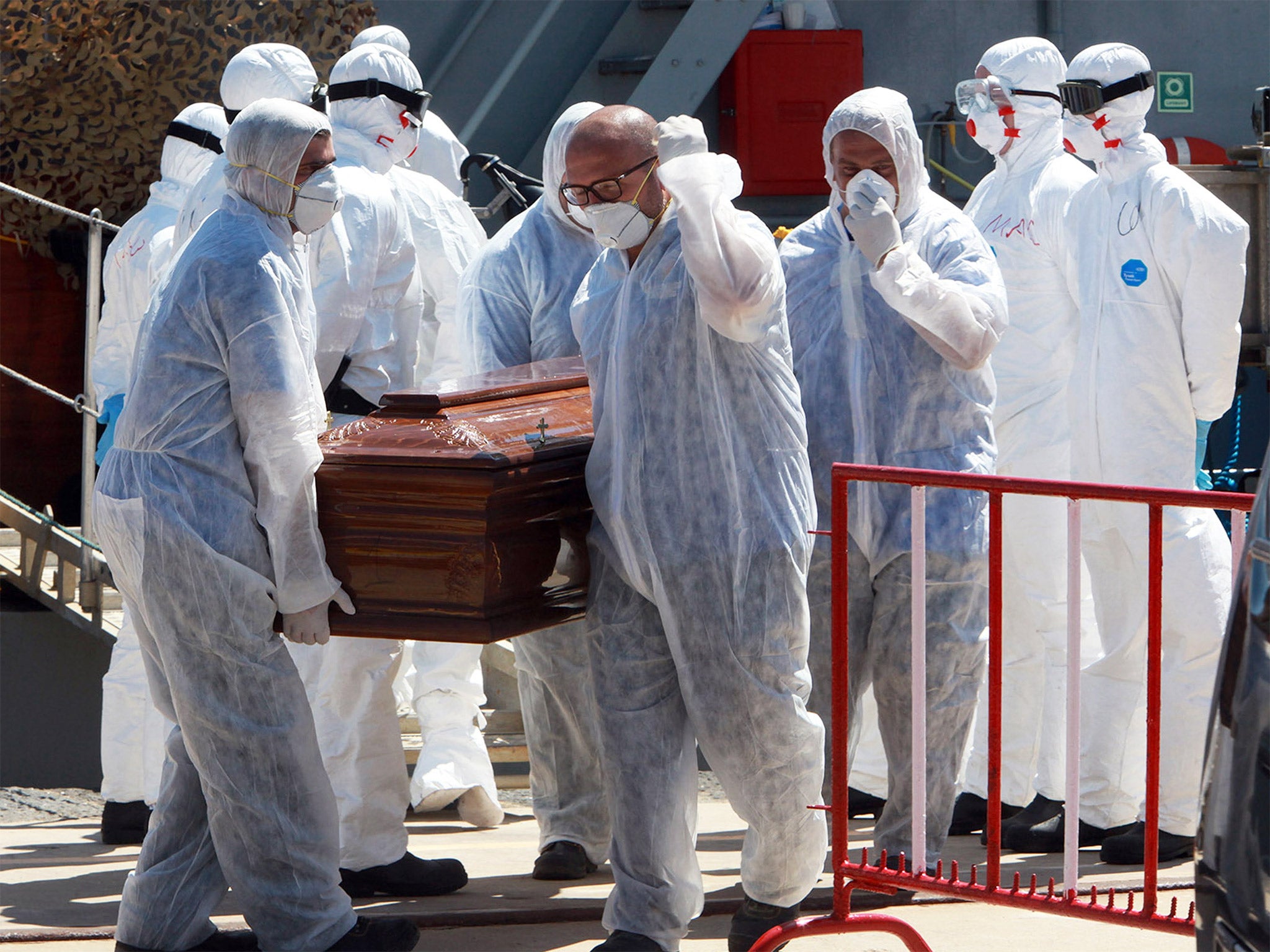
Your support helps us to tell the story
From reproductive rights to climate change to Big Tech, The Independent is on the ground when the story is developing. Whether it's investigating the financials of Elon Musk's pro-Trump PAC or producing our latest documentary, 'The A Word', which shines a light on the American women fighting for reproductive rights, we know how important it is to parse out the facts from the messaging.
At such a critical moment in US history, we need reporters on the ground. Your donation allows us to keep sending journalists to speak to both sides of the story.
The Independent is trusted by Americans across the entire political spectrum. And unlike many other quality news outlets, we choose not to lock Americans out of our reporting and analysis with paywalls. We believe quality journalism should be available to everyone, paid for by those who can afford it.
Your support makes all the difference.As a senior United Nations official, Philippe Douste-Blazy has seen his share of harrowing sights. But nothing had prepared even him for the scenes he encountered while on a fact-finding mission to the Mediterranean island of Lampedusa.
On his first trip out with Italian coastguards, he found himself staring into the hold of a smugglers’ boat with more than 50 dead migrants on board, including babies. On his second, he saw men drowning on a sinking boat and women suffering miscarriages.
“People need to see the full horror of what’s going on, and how desperate these refugees and migrants are. Then I am sure they will want to help,” he told The Independent. “The talk from politicians is of invasion, mass migration. The mood that has been created is one of xenophobia, of nationalism, of fear.
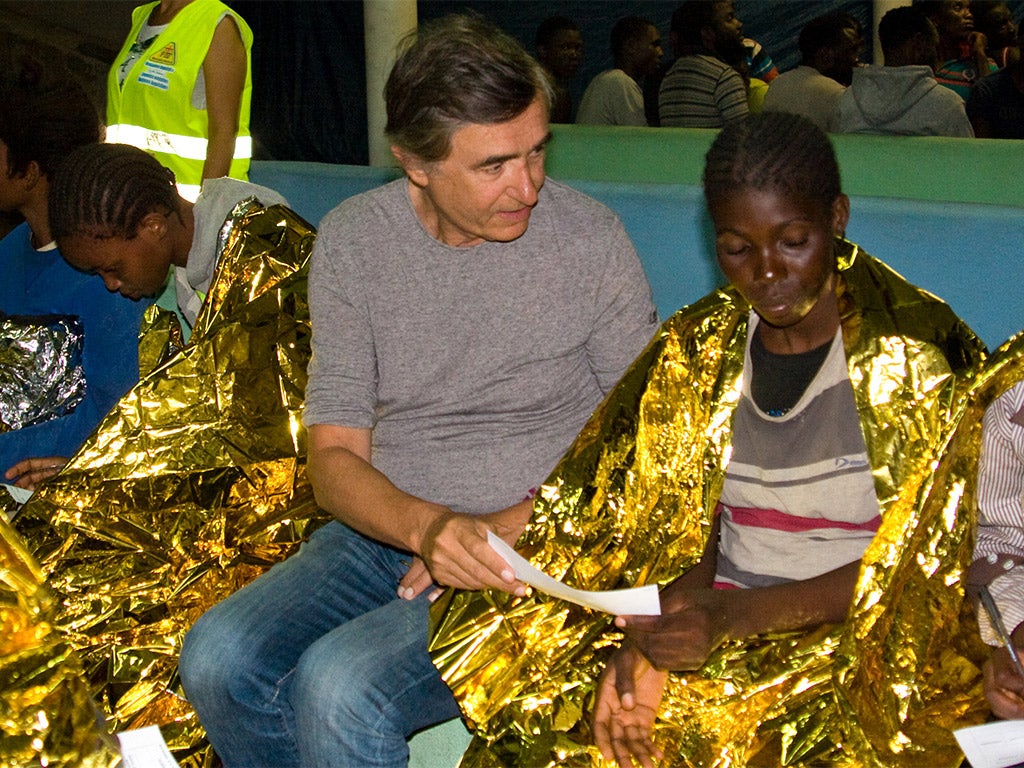
“But, you know, these populists should be careful; the people of Europe are more decent and humane than they think, and they will not like being used for political ends.”
Mr Douste-Blazy, a UN under-secretary general who is the organisation’s special adviser for development, was in London after 10 days on Lampedusa, witnessing at close quarters one of the grimmest aspects of the migration crisis that is shocking Europe. A former French Foreign and Health Minister, his passionate warning to Europe’s leaders came as accusations and recriminations continued over the European Union’s handling of the crisis, with huge numbers on the move.
The latest example of the chaos the crisis has produced came when Hungarian riot police were forced to evacuate and close the international rail station in Budapest to prevent hundreds of desperate refugees and other migrants trying to board trains to Germany, where they hoped to find a safe haven.
Figures newly released by the International Organisation for Migration (IOM) showed this was the largest migration of people in Europe since the Second World War. Some 234,770 migrants arrived in Greece alone this year, compared to the 219,000 for the whole of Europe last year; another 114,276 came to Italy and thousands more landed in Spain and Malta.
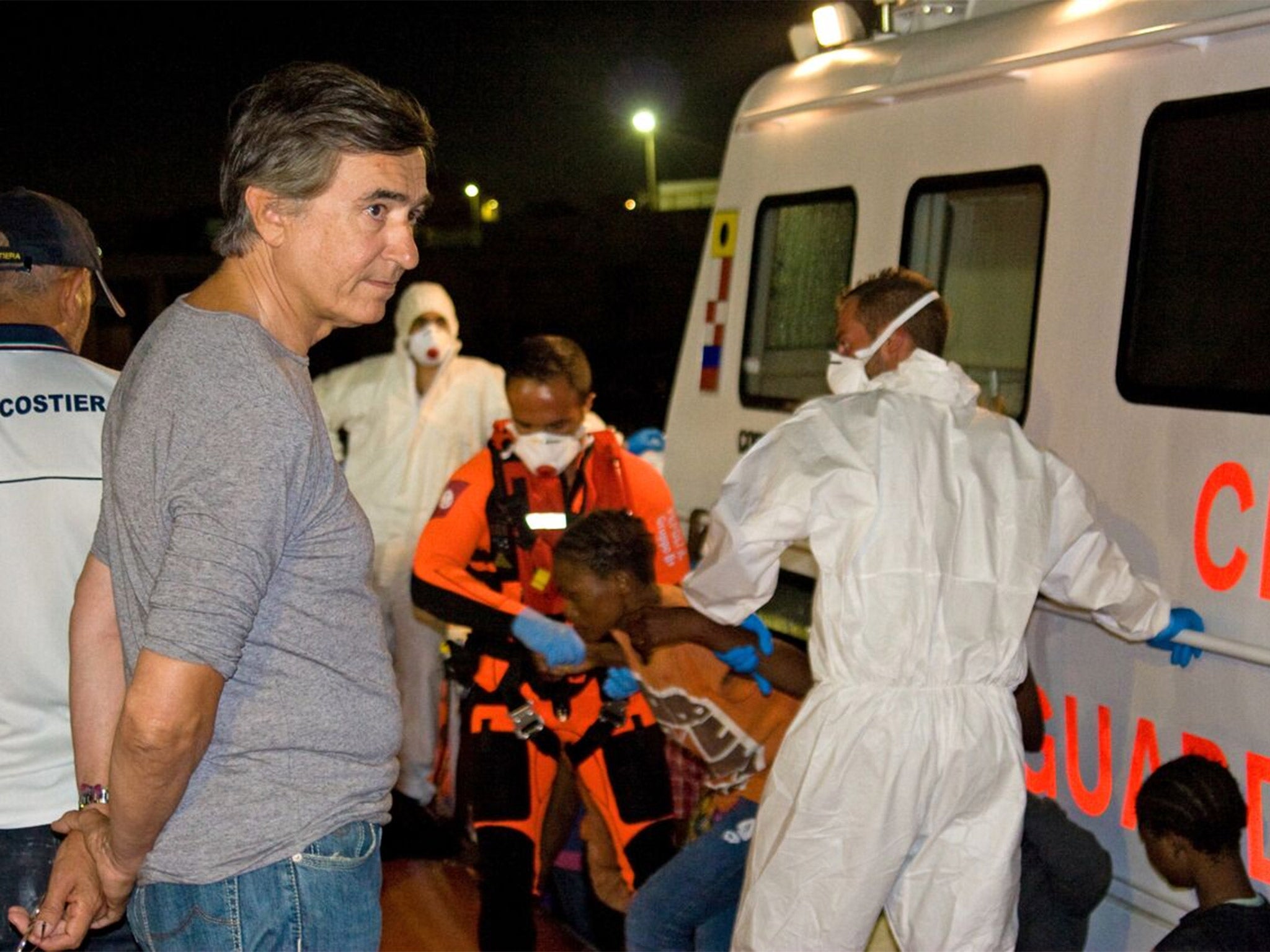
“It is very true that there are large numbers coming in, and that itself should point us towards the right away to find a solution,” said Mr Douste-Blazy. Taking aim at the emotive language used by some of Europe’s leaders, he added: “The ‘wave’, as the politicians like to call it, was, say, 10cm last year and 40cm this year; at this rate, in 10 years’ time it will be a tsunami. So what is most urgently needed is a long-term development plan that will stop these people from needing to leave their own countries.
“It’s also interesting to compare this with what happened in the Second World War. Then, for years, people didn’t talk about the terrible atrocities which were taking place– maybe because they didn’t actually know they were taking place. But do we know what is going on now, so can we really just turn away?”
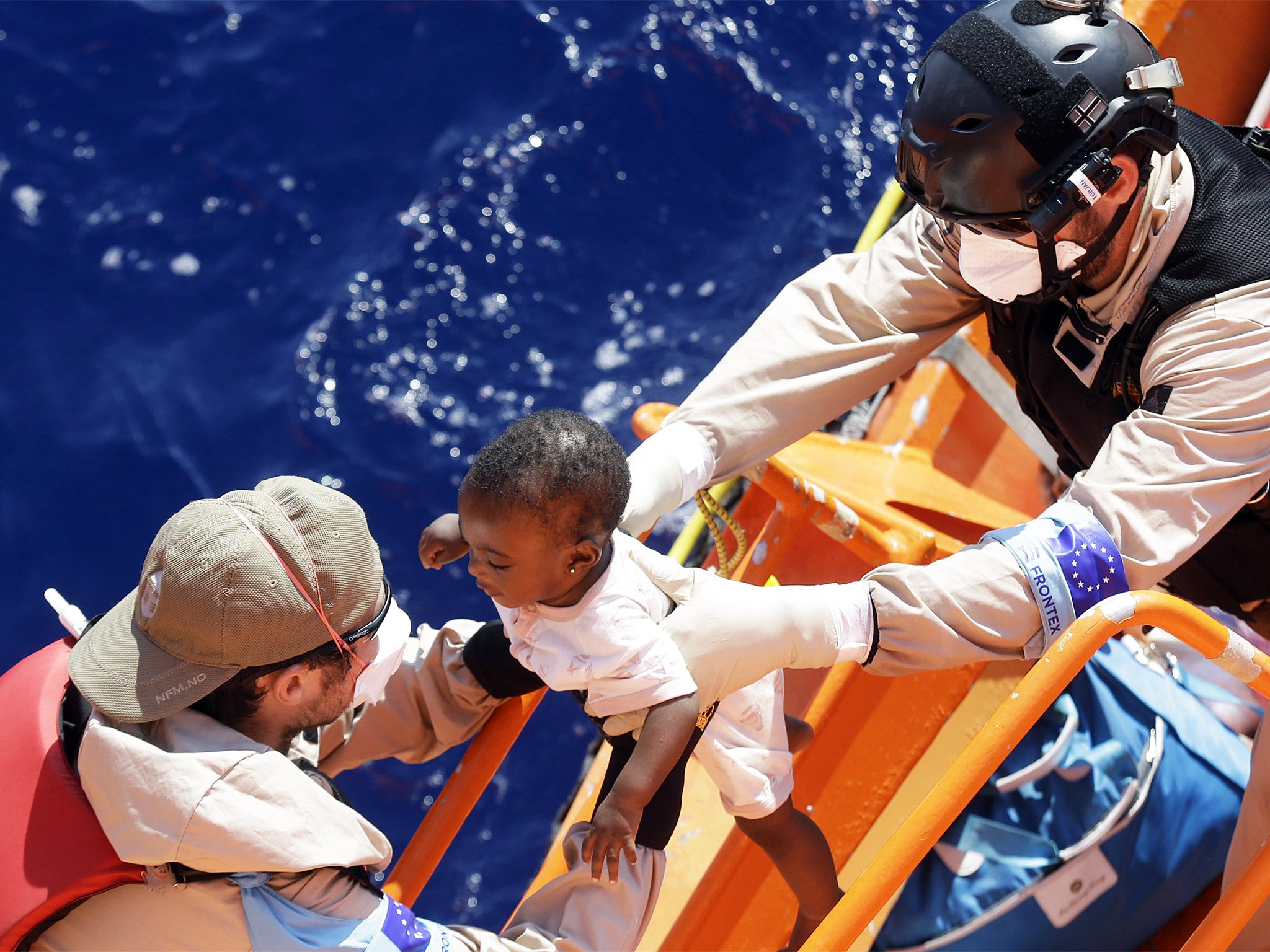
A professor of cardiology before turning to politics, it was clear that he had been deeply affected by his experiences in Lampedusa.
He showed photographs he had taken of people on trafficking boats, some with severe injuries and some whose lives he had himself tried to save. “This woman was suffering from exposure, really badly,” he said. “I found her and we did what we could to help, but she died. That was her baby, he did not survive either, unfortunately – it was very sad. These people were under tremendous psychological as well as physical stress. Pregnant women were aborting their babies spontaneously.
“There were other things I will never forget; water was coming into a dinghy and three men were scooping it out, but the men just got sucked into the sea before rescuers could get to them – they were lost.”
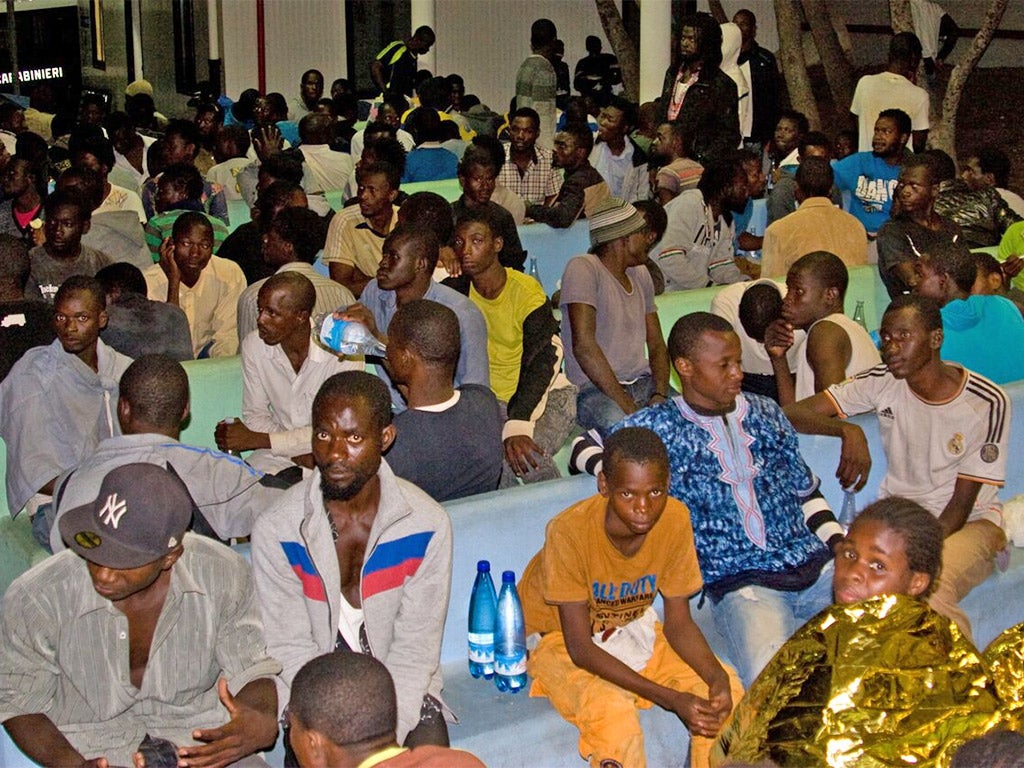
Mr Douste-Blazy has launched a petition, addressed to the heads of G20 states, urging innovative ways to produce greater investment in development – an issue that will be discussed at a UN General Assembly meeting on sustainable development later this month.
“I know it is difficult in a democracy to talk about long-term plans because politicians think short term, they think about the next election. It is also the case that Western countries have had to cut aid budgets, although the UK, Norway and Sweden are exceptions,” he said. “So we need to find means of raising these funds.”
He pioneered a “micro-levies” scheme which raised more than $2.1bn (£1.4bn) for development by adding $1 to every air fare among participating airlines. “Nobody in France noticed that. Just with a short flight, paying that tiny bit extra, they were saving two children with malaria,” he said. “Something like that can be used for development in the migrants’ home countries. Such a payment would not only show solidarity; it would also be a saving for taxpayers: they will be saving the taxes they’d otherwise have to pay to support large numbers of migrants for the next 10 years. Surely, development is a better way to spend money than on additional police and military, or on building fences. As we can see, these things are not keeping determined migrants out.

“There is another factor in this: poverty, disease and lack of education created the conditions for conflict, for civil war and for groups like Isis to exploit disaffected youth. Just think of the cost of that as well as the cost of migrants.”
Even if development is the long-term answer, what about the effect on the West of large-scale migration? “We know what can arise, how people will try to use it, the dangers of racism and division. But many migrants are already here and it is very important to make sure that they are dealt with in a way which would help society as well as help them,” he said.
Reflecting again on the human misery he had just seen, he added: “But, you know, at the end of the day, we should also be helping these poor, desperate people just because that would be the civilised thing to do – the right thing to do.”
Join our commenting forum
Join thought-provoking conversations, follow other Independent readers and see their replies
Comments